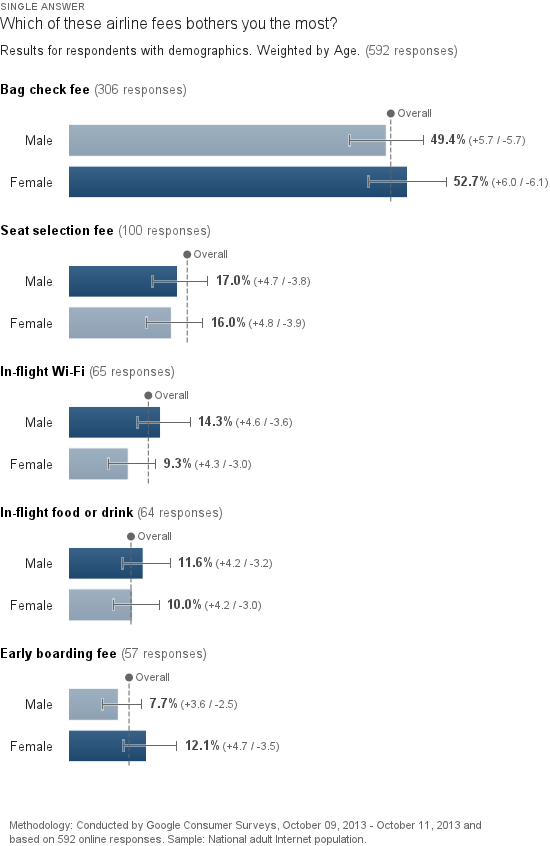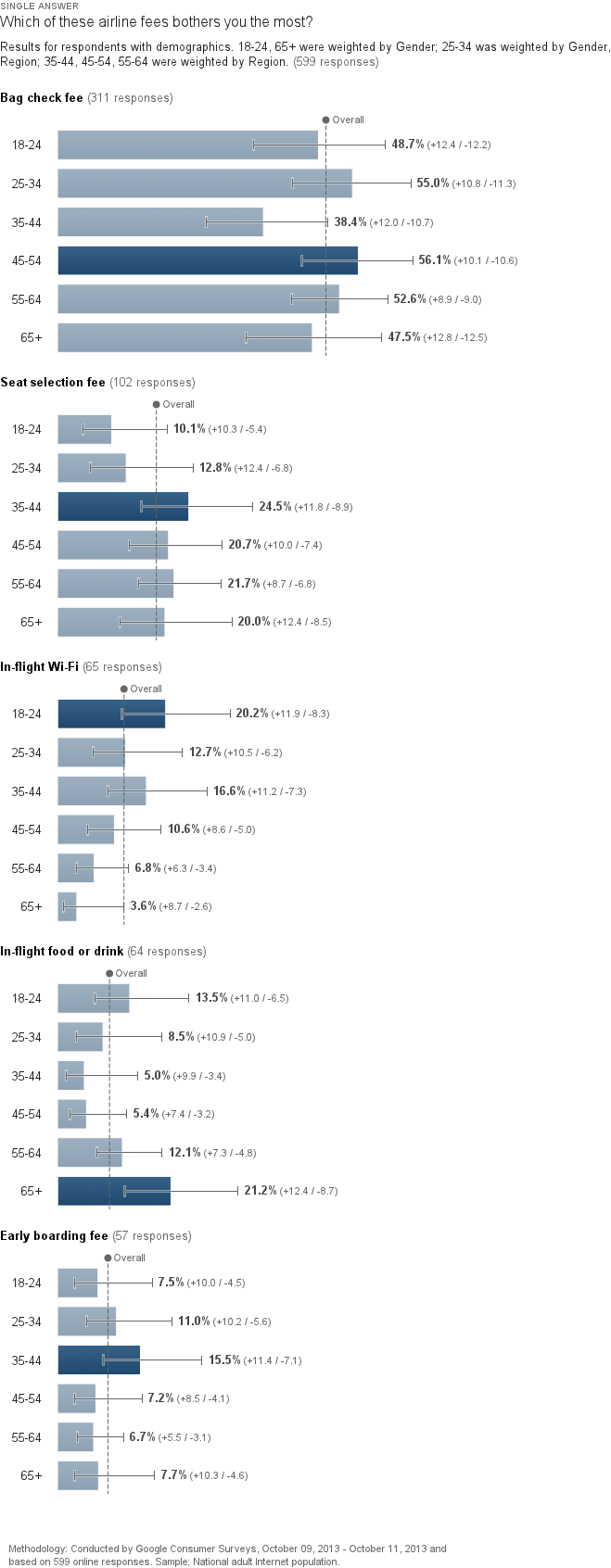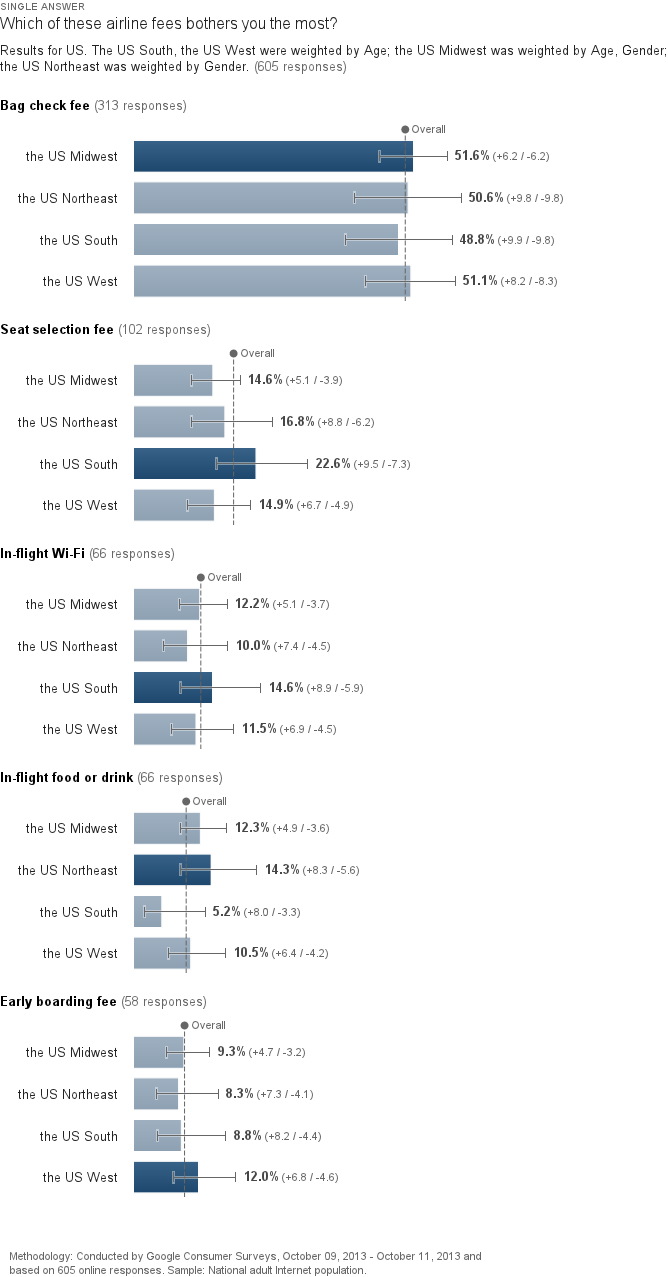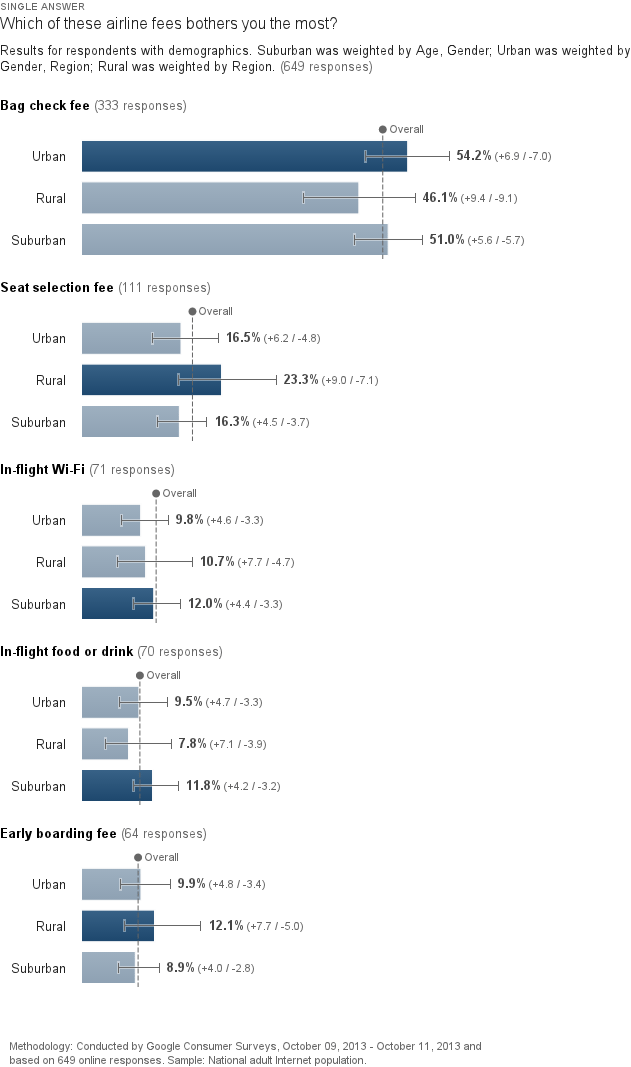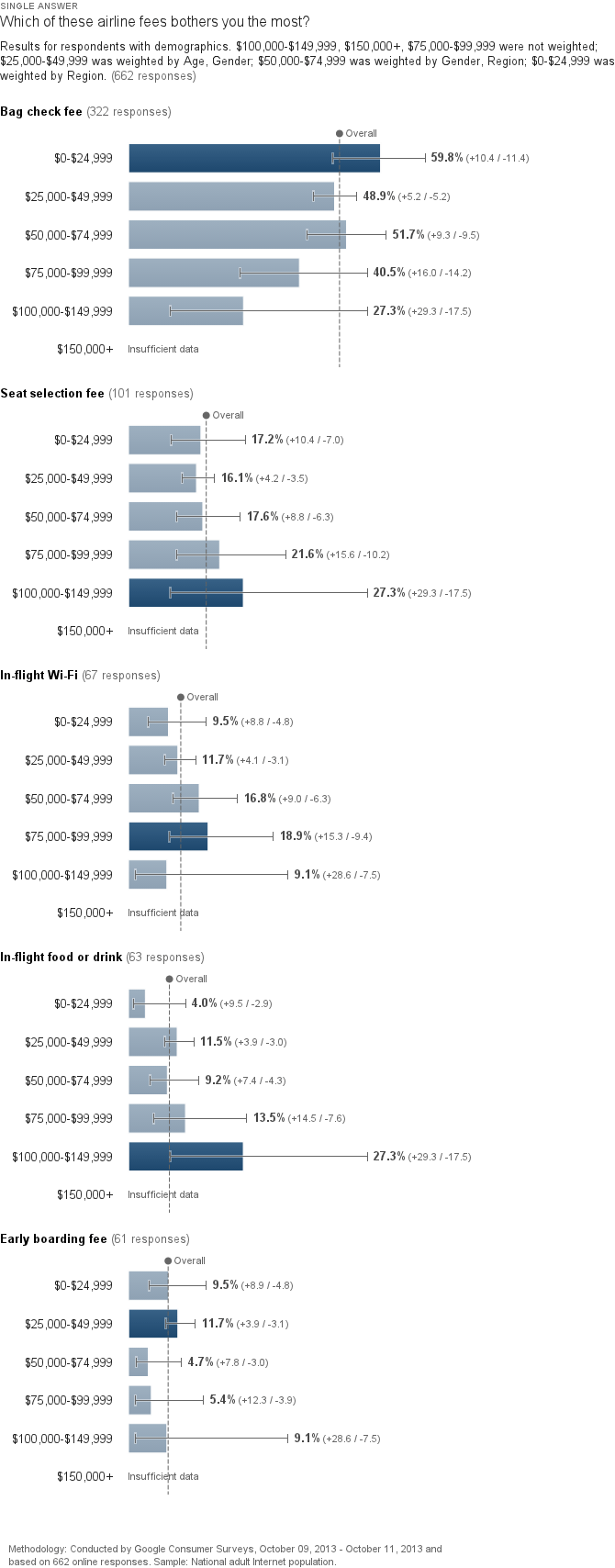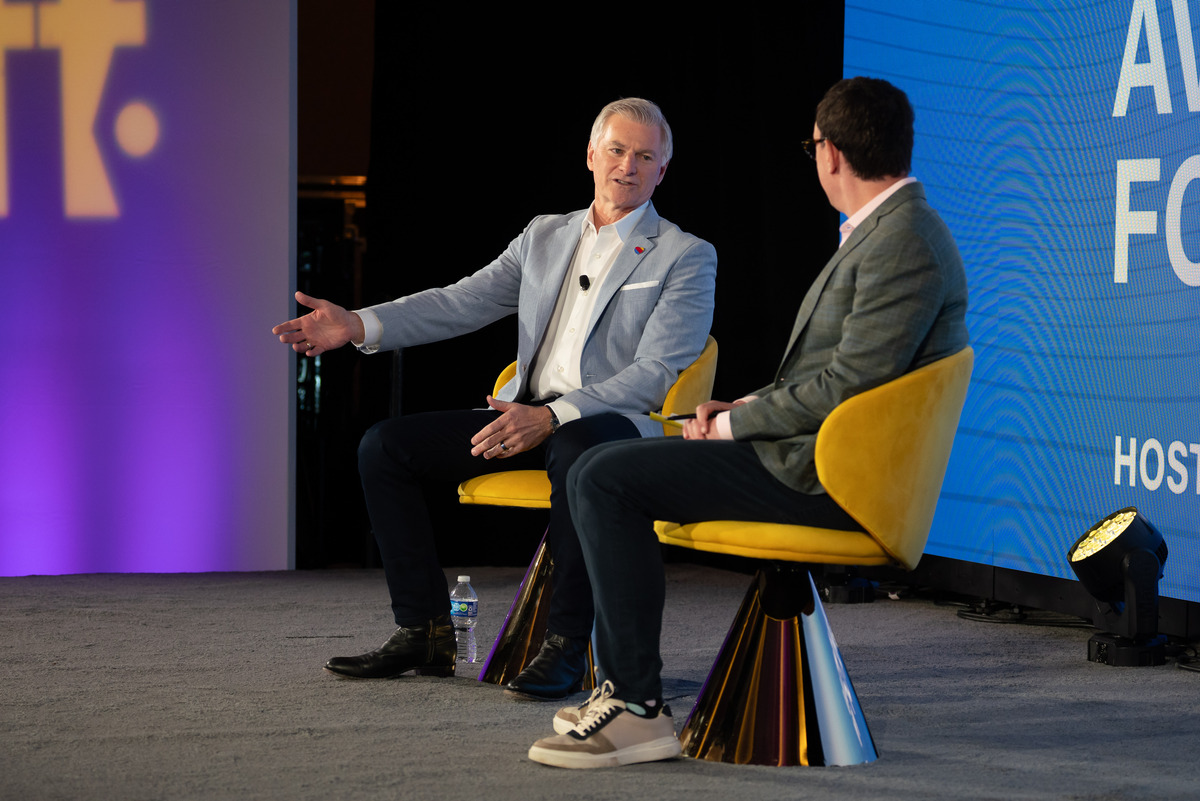Skift Asks: What's Your Least Favorite Airline Fee?
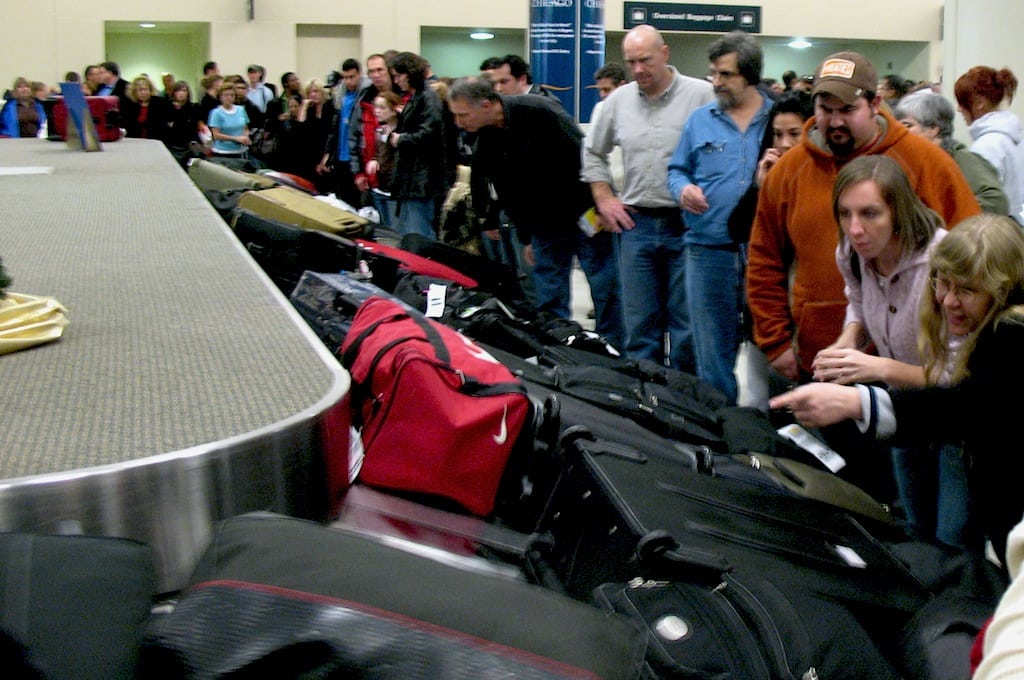
Skift Take
Fees have become a begrudgingly accepted part of travel and and such an essential part of airlines' revenues that we are likely never going back to the days of all-inclusive air travel.
Want to sit next to a loved one (starting at $30 at US Airways), eat a meal ($9.99 for a roast beef sandwich on American), or check your bag ($25 for the first one on United)? Get your credit card out.
In 2012, airlines around the globe collected $27.1 billion in fees, with four U.S. airlines -- United, Delta, American, and Southwest -- dominating the top four slots. United alone collected $5.4 billion while low-cost carrier Spirit collected more of its revenue via fees (38.5%) than any other carrier.
So with fees to stay, we decided to look at those that flyers accept and those that still bother them.
Important: The survey is not done on Skift readers but the general U.S. internet adult population through Google Consumer Surveys. See previous Skift Asks here.
For our survey, we asked 1,000 people "Which of these airlines fees bothers you the most?" and gave them five options to choose from:
- Bag check fee
- Seat selection fee
- In-flight Wi-Fi
- In-flight food or drink
- Early boarding fee
Although change fees are a significant contributor to airlines' revenues, they are not ones travelers will deal with nearly every time they fly.
Respondents overwhelmingly chose the checked bag fee as their least favorite. It's important to note that this isn't just about what's most expensive. Bag fees range from $25 for the first checked bag on some airlines, while early boarding fees or reserving an aisle or window seat can be more than double that.
This single-question survey was administered to the U.S. internet population from Oct. 9-11, 2013 through Google Consumer Surveys, with 1,000 responses. The methodology is explained here.
The headline takeaway: Good news for Southwest: The majority of U.S. travelers most dislike paying a fee to check a bag. A far-off second is the seat-selection fee that many travelers have to pay in order to sit next to a loved one or child without playing a game of seat switching after they board.
The takeaway: With the exception of Wi-Fi and early boarding fees, men and women are in relative agreement on which ones they like the least. These two differentiators speak to the larger number of men who travel for business, as we've seen in previous Skift Asks.
The takeaway: Younger flyers see in-flight Wi-Fi more as a right, than a perk that other flyers may see it. We can also assume that the seat selection fee here is disliked more in the 35-44 age group because of those that travel with kids. And the 65+ crowd that is perturbed by fees for food? They remember the good old days of table cloths and sliver ware.
The takeaway: Looks like checked bag fees are the one thing that all Americans agree on.
The takeaway: Again, not a great deal of variance between city dwellers and their country brethren. Rural travelers are more bothered by seat selection fees, though.
The takeaway: Here's where we finally see a difference. Wealthy travelers don't mind paying that bag fee as much as the the other groups, while lower-income travelers are the least bothered by paying for food.


